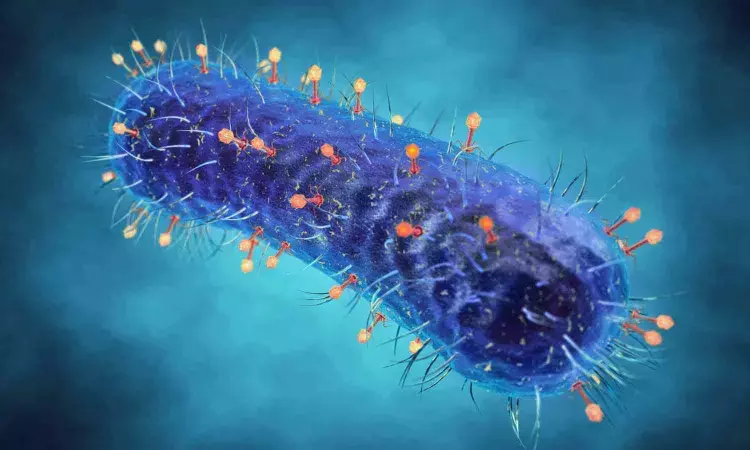- Home
- Medical news & Guidelines
- Anesthesiology
- Cardiology and CTVS
- Critical Care
- Dentistry
- Dermatology
- Diabetes and Endocrinology
- ENT
- Gastroenterology
- Medicine
- Nephrology
- Neurology
- Obstretics-Gynaecology
- Oncology
- Ophthalmology
- Orthopaedics
- Pediatrics-Neonatology
- Psychiatry
- Pulmonology
- Radiology
- Surgery
- Urology
- Laboratory Medicine
- Diet
- Nursing
- Paramedical
- Physiotherapy
- Health news
- Fact Check
- Bone Health Fact Check
- Brain Health Fact Check
- Cancer Related Fact Check
- Child Care Fact Check
- Dental and oral health fact check
- Diabetes and metabolic health fact check
- Diet and Nutrition Fact Check
- Eye and ENT Care Fact Check
- Fitness fact check
- Gut health fact check
- Heart health fact check
- Kidney health fact check
- Medical education fact check
- Men's health fact check
- Respiratory fact check
- Skin and hair care fact check
- Vaccine and Immunization fact check
- Women's health fact check
- AYUSH
- State News
- Andaman and Nicobar Islands
- Andhra Pradesh
- Arunachal Pradesh
- Assam
- Bihar
- Chandigarh
- Chattisgarh
- Dadra and Nagar Haveli
- Daman and Diu
- Delhi
- Goa
- Gujarat
- Haryana
- Himachal Pradesh
- Jammu & Kashmir
- Jharkhand
- Karnataka
- Kerala
- Ladakh
- Lakshadweep
- Madhya Pradesh
- Maharashtra
- Manipur
- Meghalaya
- Mizoram
- Nagaland
- Odisha
- Puducherry
- Punjab
- Rajasthan
- Sikkim
- Tamil Nadu
- Telangana
- Tripura
- Uttar Pradesh
- Uttrakhand
- West Bengal
- Medical Education
- Industry
Personalized Inhaled Bacteriophage Therapy Shows Promise for Cystic Fibrosis: Study

A small study published in Nature Medicine reported encouraging results for personalized inhaled bacteriophage therapy in treating cystic fibrosis (CF) patients with drug-resistant pulmonary infections. Individualized nebulized bacteriophage (phage) therapy has been found to decrease bacterial load and enhance lung function in CF patients with drug-resistant Pseudomonas aeruginosa infection. The research identifies phage therapy as a promising approach to tackle antimicrobial resistance, especially in chronic lung infections of CF. The study was conducted by Benjamin K.C. and colleagues.
Phage therapy, where lytic viruses are used to infect and kill targeted bacteria, is being considered as a solution to the worldwide antimicrobial resistance problem. Cystic fibrosis is a hereditary disease frequently complicated by chronic Pseudomonas aeruginosa infections that become more resistant to standard antibiotics with time. In this trial, an individualized phage therapy approach was tested in which the phages were chosen not only for their ability to kill the bacteria but also to cause bacterial vulnerabilities—like decreased antibiotic resistance or decreased virulence.
Nine adult CF patients (eight female, one male; median age 32 years, range 22–46 years) with MDR or PDR Pseudomonas infection were enrolled in a compassionate-use treatment protocol. The infections had failed multiple previous antibiotic regimens. Either a nebulized phage cocktail or a single-phage therapy was administered to each patient, chosen on the basis of anticipated evolutionary trade-offs that would compel the bacteria into becoming either less virulent or more antibiotic-sensitive.
Notably, both patients tolerated the phage therapy with no occurrence of adverse effects. The phages were administered via inhalation, which is where the infection was present.
Results
• Patients enrolled: 9 (8 women, 1 man)
• Median age: 32 years (range 22–46)
Type of infection: MDR or PDR Pseudomonas aeruginosa resistant to conventional antibiotics
• Method of delivery: Nebulized cocktail or single phage therapy
• Safety: No adverse effects reported
Reduction of bacteria:
• Median: Reduction in Pseudomonas of 10⁴ CFU/ml
• Mean: Reduction of 10² CFU/ml (P = 0.006)
Improvement of lung function:
• Median FEV1: +6%
• Mean FEV1: +8% (P = 0.004)
• Sputum microbiome: Remains unchanged
• Trade-offs: Compromise loss of antibiotic resistance or virulence of bacteria
Personalized nebulized phage therapy is shown to be a safe and effective method of decreasing bacterial load and enhancing lung function in cystic fibrosis patients with drug-resistant Pseudomonas aeruginosa infection. The novel therapy not only reduces bacterial numbers but also imposes genetic trade-offs on bacteria that can decrease their resistance and virulence.
Reference:
Chan, B.K., Stanley, G.L., Kortright, K.E. et al. Personalized inhaled bacteriophage therapy for treatment of multidrug-resistant Pseudomonas aeruginosa in cystic fibrosis. Nat Med (2025). https://doi.org/10.1038/s41591-025-03678-8
Dr Riya Dave has completed dentistry from Gujarat University in 2022. She is a dentist and accomplished medical and scientific writer known for her commitment to bridging the gap between clinical expertise and accessible healthcare information. She has been actively involved in writing blogs related to health and wellness.
Dr Kamal Kant Kohli-MBBS, DTCD- a chest specialist with more than 30 years of practice and a flair for writing clinical articles, Dr Kamal Kant Kohli joined Medical Dialogues as a Chief Editor of Medical News. Besides writing articles, as an editor, he proofreads and verifies all the medical content published on Medical Dialogues including those coming from journals, studies,medical conferences,guidelines etc. Email: drkohli@medicaldialogues.in. Contact no. 011-43720751


